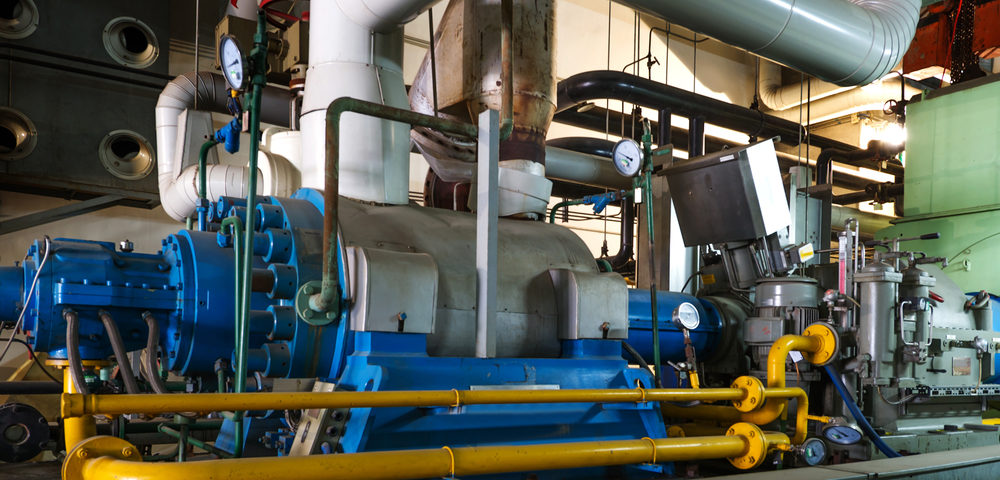Boiler breakdowns can be a costly occurrence in terms of both equipment repair and lost production. Regular boiler maintenance is critical to helping prevent such outages and maximizing boiler efficiency. In this blog, we explore some of the key areas that should be checked to ensure continuous, trouble-free boiler operation.
Safety Valves – Safety valves are the primary safety features of a boiler. As a result, it is essential that they are checked and cleaned regularly. Most often, the operation of a safety valve is compromised by restricted flow from scale build-up or internal corrosion. Both conditions can be caused by even minor leakage through the valve seat. Stripping and cleaning valves before assembly or reassembly will help prevent this.
Water Level Control – A water gauge helps the operator determine the water level in the boiler. If the gauge glass becomes stained or coated with precipitates in boiler water it can give incorrect readings. Because of this, the sight glass needs to be cleaned regularly. Piping to the gauge must also be cleaned to ensure unrestricted flow. The float chamber is designed to maintain correct water levels for optimal boiler operation. It should be flushed and the associated piping cleaned of any sludge or sediment.
Fuel Cut-off – This critical safety feature automatically stops fuel flow to the boiler if the water level drops below a certain setpoint. Piping should be kept free of scale or sediment. A qualified technician should also periodically inspect the fuel cut-off control to ensure that the system is working properly.
Stack Temperature Gauge – This monitors the temperature of flue gas leaving the boiler. A high stack temperature may indicate a loss of heat transfer efficiency. This can be caused by a build-up of scale or soot on the boiler tubes, resulting in energy loss and increased operating costs. The gauge should be stripped, cleaned and recalibrated regularly.
Heat Transfer Surfaces – Removing soot and/or scale build-up from heat transfer surfaces is essential to efficient boiler operation. Doing so improves heat transfer from the heat source to the boiler water and ensures reliable steam generation.
Economizer – An economizer recovers the waste heat from flue gas, which can then be used to preheat boiler feedwater. It must be cleaned and maintained to increase boiler efficiency and to ensure that energy recovery is maximized.
Air-to-fuel Ratio Control – An optimal air-to-fuel ratio will ensure that the boiler receives the right amount of oxygen needed for efficient combustion. Excess air that is not used for combustion is heated unnecessarily and exits the boiler through the stack as waste heat. Too little air will result in unburned and wasted fuel. It also contributes to soot buildup, as well as the accumulation of smoke and carbon monoxide.
A computerized system can be used to measure and control the air-to-fuel ratio. Analysis of the amount of oxygen in flue gas and stack temperature measurement will provide an indication of combustion efficiency. The control system will then adjust air flow for fuel combustion as needed. Because this ratio plays such a crucial role in boiler performance, all instrumentation associated with the control system needs to be thoroughly cleaned, maintained and calibrated regularly.
Condensate Recovery – Condensate recovered from the boiler can be re-used as feedwater to improve boiler efficiency. It takes less energy to convert recovered condensate into steam than much colder utility water. Cost savings are also realized by a reduction in utility water treatment. Steam traps should be checked to ensure proper operation and all piping and equipment associated with the condensate recovery system should be checked for leaks.
Boiler Water Treatment – Utility water needed for the boiler has to be treated before use. Impurities in the water can lead to the build-up of scale on the heat transfer surfaces of the boiler, causing a reduction in efficiency. The build-up of impurities in the boiler often necessitates a blowdown to remove them. This process requires boiler shutdown, with corresponding energy and production losses. Generally speaking, the cleaner the water, the fewer number of blowdowns will be needed. All aspects of the boiler water treatment system must be checked, including equipment, piping, instrumentation and the chemical dosing plant.
General Plant Inspection – All piping and peripheral plant associated with the boiler should be checked regularly for any sign of leaks or corrosion. A small problem left unattended to can quickly turn into a bigger issue requiring a major repair.
Boiler Logs – Many problems manifest themselves over time. A record of boiler operation may indicate a trend that shows a need for maintenance. A properly kept log of maintenance will highlight an item of boiler plant or equipment that needs constant maintenance and may be in need of repair. Logs should provide a continuous record of boiler operation, inspection, testing and maintenance. It is essential that boiler operators and maintenance staff are meticulous in updating them.
